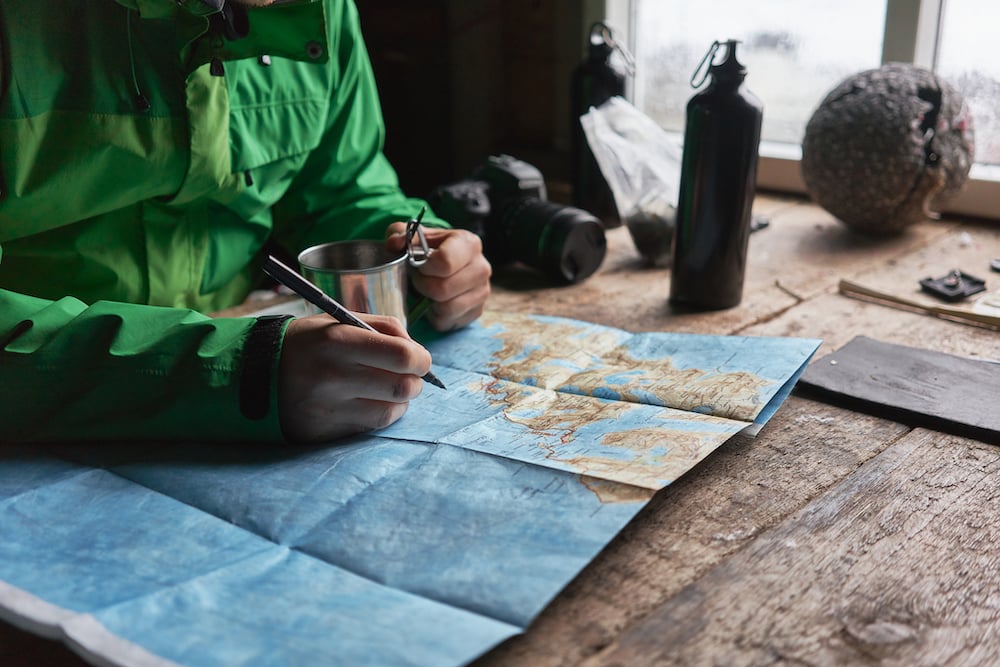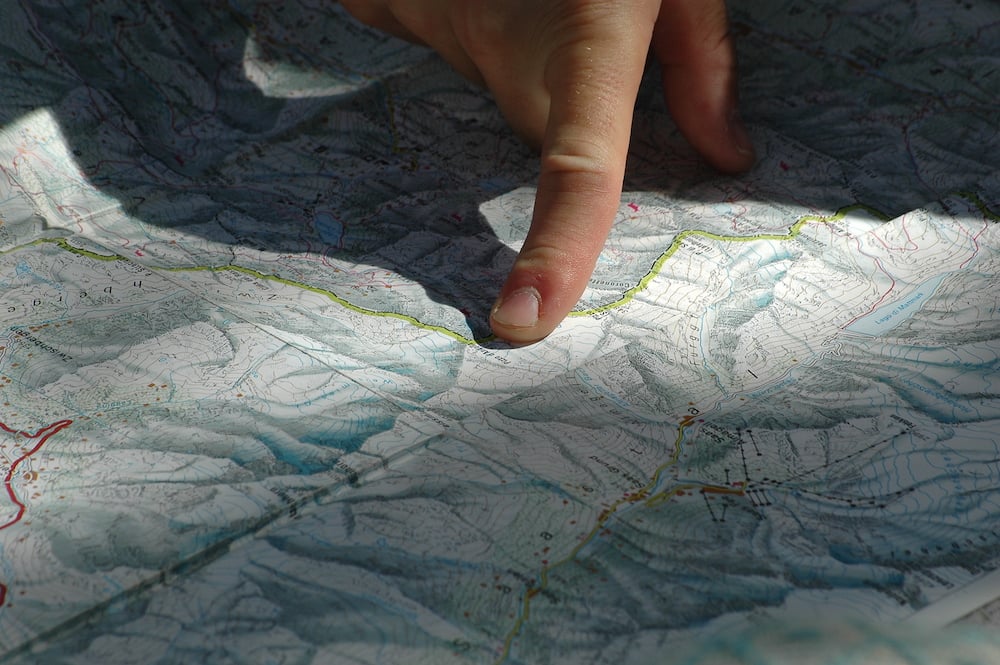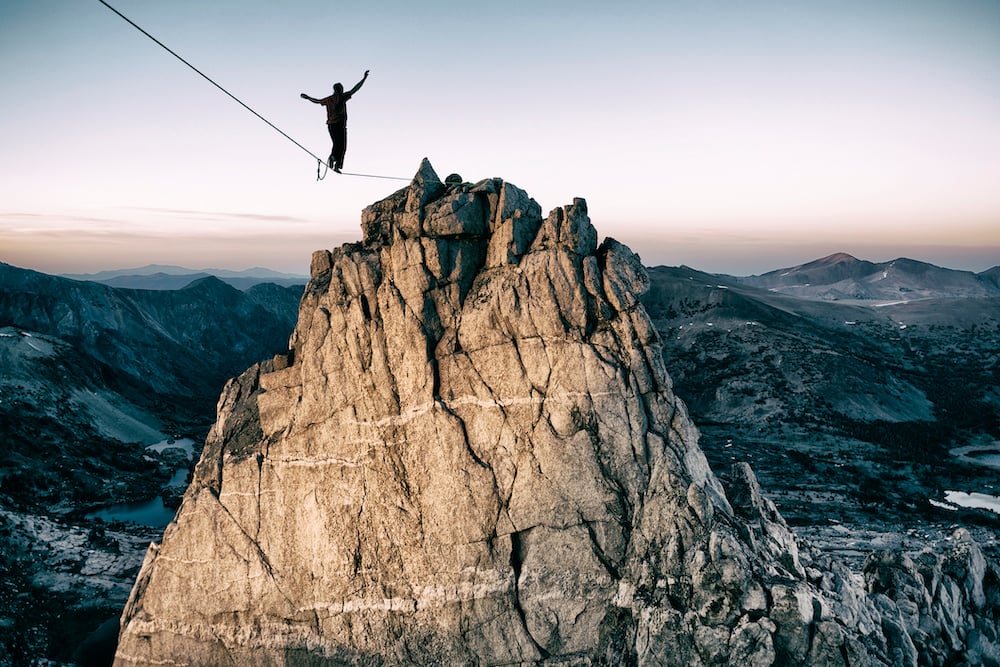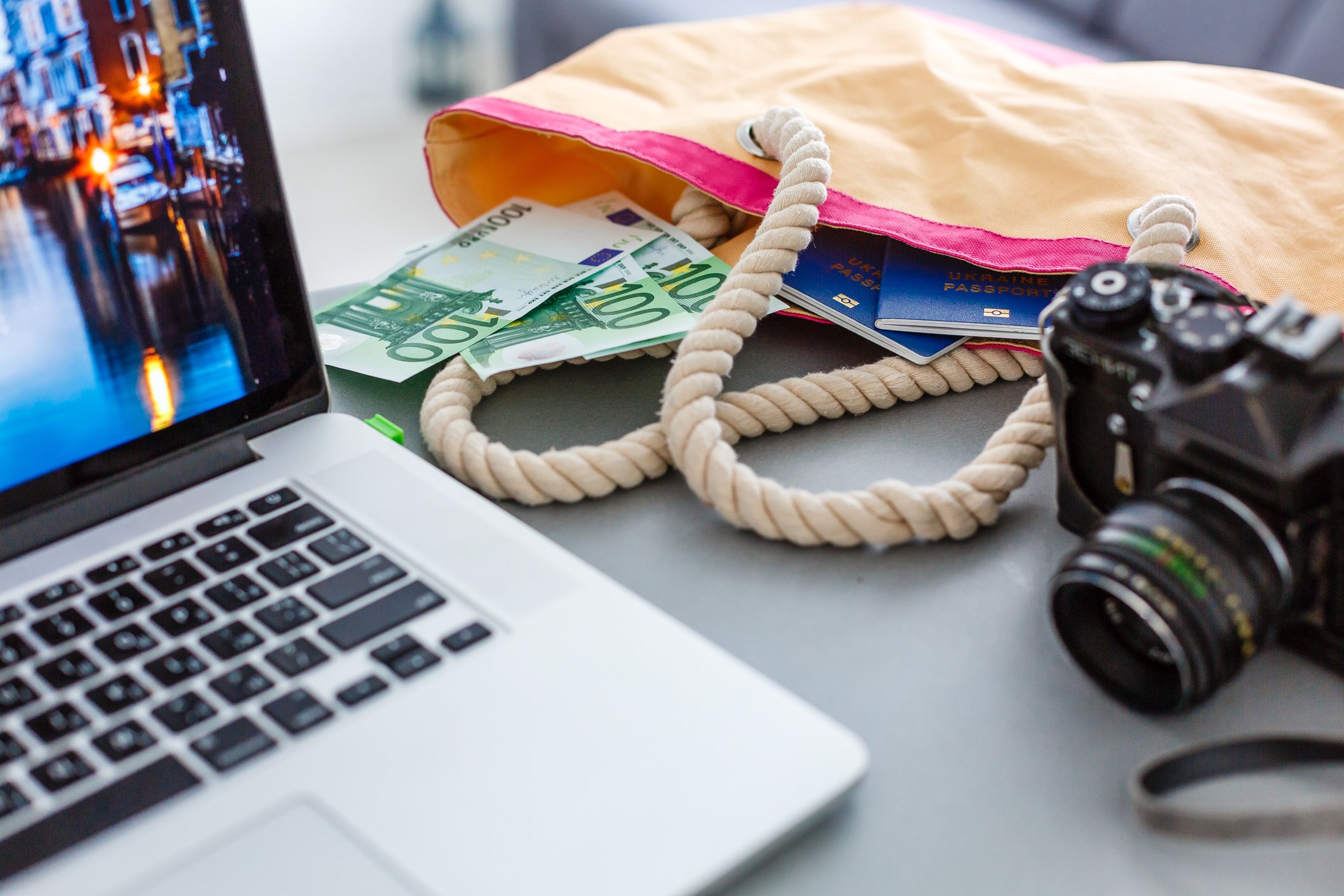
“How do I plan an adventure?” has got to be top of my most-asked-questions-about-adventure list. Alongside things like, “How do I work out what kind of adventure to do?” and “I’m scared people will judge me, how do I tell them?” That and, of course, the question that makes any serial adventurer wince, “So… what are you doing next?”
This is a bit of a weird one. Usually in situations where we get experts in to talk to you, I’d write a quick introduction of the person I’m interviewing and then let them take it away. But in this article I’m introducing myself… so it all gets a bit meta. This is me: take it away me!
Now I may only be an ordinary magazine writer, but my not-so-secret alter ego spends all her time running away on adventures. Like when Clark Kent runs for a phone box (wonder what he uses nowadays) or when Eric eats a banana… You might be pleased to discover that someone who writes about adventure for a living also has an incurable adventure habit. Not least because there’s a chance that I actually know what I’m talking about! I’ve been leading and organising trips to the mountains for over ten years and once spent 50 days cycling around Europe because, well, it sounded like fun.
Once you get a reputation for this kind of thing your friends, family and random strangers on the internet start to quiz you about it. I teach people this stuff. So let me suit up and talk you through some of the key steps of how to plan an adventure.
Pin down your adventure

This can be the hardest part of planning an adventure. No seriously. So many adventures never get beyond this stage. We live in a world of endless opportunities, competing for our attention. Should I climb a mountain or kayak a river? And which mountain or river? And when? What should I do first? Which is better?
Okay, okay, calm down. The important point is not to be a donkey about it – and that’s not an insult (to your or the donkey). Let me explain. There is a fable about a donkey tied to a post in the desert. He’s really hungry and thirsty – well duh, he’s in the middle of a desert. Luckily, someone has left food and water near to his post. They’re both within reaching distance, but in opposite directions. He doesn’t know which one to choose… and eventually dies of both hunger and thirst. Don’t be a donkey. You can have it all, but you have to pick one first.
Adjust to reality

Once you’ve picked a challenge, it’s worth working out if you’re biting off more than you can chew. As gnarly as some adventure stories sound, no one really wants to be the body on Everest wearing wellies. Darwin Awards are not a thing to aspire to. There are many different ways to experience adventure and the trick is to find a way that’s stretching enough, without being dangerous. So take a long hard look at your adventure plans and your appetite for risk.
You can always adjust your plans by moving back the start date to give you time to train, or by hiring a guide. There is a misconception (read: snobbery) in some adventure circles about hiring guides. It is no less of an adventure if you have a guide and, really, it all comes down to speed. You could spend years building up to the skill level of the guide before attempting your adventure… or you could do it now, with a guide. If anything, you’ll probably have more of an adventure by choosing the second option: you’ll get further out of your comfort zone because you know you’re in safe hands. It’s also a really great way to supercharge your learning and pick up skills.
Once you’re set on what your adventure’s going to be, it’s time to get down to the nitty-gritty.
Finalise the Details

This is the point where people tend to get lost in a spreadsheet. You can do that if you really want to… colour-coded spreadsheets just get some people going! But there is really no need to do this. If spreadsheets make you want to run to the office kitchen for a cuppa with your co-workers. As the famous cycle touring mantra goes: all you need to cycle round the world is to find a bike and start pedalling.
The most important bits to focus on are what I call the Three Acts of your adventure: getting to the start, the adventure itself and getting back home again. Personally, the stress for me comes mostly from the first and last act. I hate the logistics of getting trains, flights, buses and ferries to line up. But give me start and end point, a bike or boots and a tent and I’ll happily set off without any further planning. See you at the finish, I’ll work it out along the way.
Other people will be sweating just reading that sentence. They’ll have got Adventure Acts one and three sorted in fifteen minutes, but be spending hours meticulously planning each day between A and B. The important point is that neither of these approaches are wrong. The key is to know what suits you and work with it.
Book it

At some point, you have to put a stake in the ground. After all, what makes an adventure actually happen is doing it. You can be a spreadsheet emu until the end of time. But if you summon up the guts to book something – be it a single ticket or time off work – you’d be amazed how quickly the rest follows. It’s like rolling down a hill. After the initial shove at the top, the momentum takes you down to the bottom.
You will never get to the stage where everything lines up perfectly. That, reader, is adventure. Things will crop up that you weren’t expecting: the third hut on you tour is full and you’ve already booked the first two; the bus route you thought was running is cancelled for the season; or a pandemic puts the future on hold music. But it’s all good mindset preparation for dealing with problems, adapting and becoming an altogether slippery fish to anything that tries to catch you out. You will certainly encounter challenges along the way. It’s good to be used to bouncing back, for the moment when your tent pole snaps or you realise you didn’t pack the camping gas…
So, take heart, adventurer. It’s time to decide if you’re a dreamer or a do-er. Go cross your fingers behind your back and book that ticket; chat to your boss about time off work. You’re in for a ride.
For the bold: take action right now, book an adventure holiday to look forward to.


